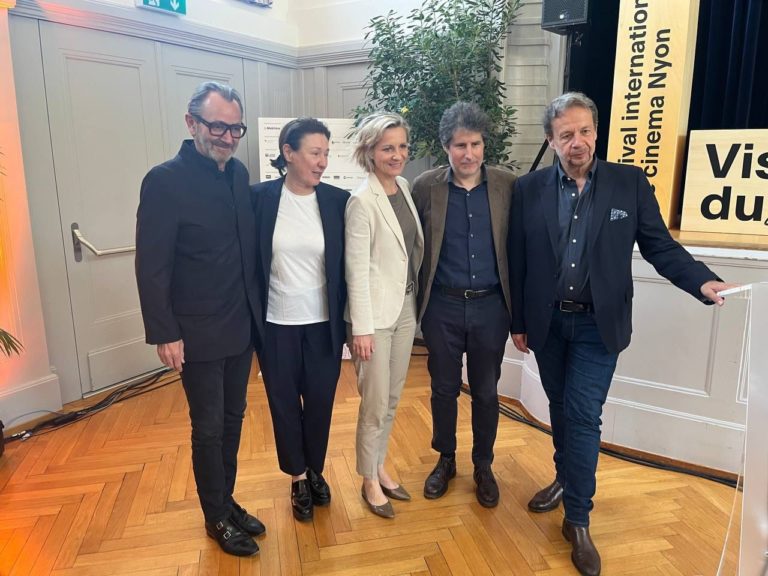
Science, journalism and openness to the World
March 20, 2024
Online media in Switzerland: facts are stubborn, the masks are falling!
October 21, 2024An engaging roundtable discussion, organized as part of the Visions du Réel festival—with SRG as media partner—brought together Simone de Montmollin (FDP National Councillor), author Giuliano da Empoli, and myself, moderated by journalist Romaine Jean. It was an opportunity to assess the role of social networks, their impact on politics, and the responsibility of the media.
Algorithms, Politics and the Media
Da Empoli, author of The Wizard of the Kremlin (Gallimard, Folio), recounted Vladimir Putin’s rise to power in a gripping novel that vividly captures the inner workings of the Russian state machinery at the time.
But we were in Nyon to discuss another of his books: an essay, The Engineers of Chaos (JC Lattès, Folio), dedicated to a potent and troubling mix, as the author describes it: rage and algorithms.
In other words, society is fragmenting and becoming more individualistic; personal grievances sharpen and spread endlessly, unfiltered, across social media. These grievances are carefully analyzed by “engineers of chaos,” who then send highly targeted messages designed to strike at the heart of their audiences and sway their votes. To achieve this, these engineers have devised sophisticated mechanisms based on data processing. And it is in this way, for example, that Brexit triumphed, or that the Five Star Movement and Donald Trump came to power.
It is also in this way that algorithms, placed in skilled hands, are casting heavy clouds over democracy—across Europe and the wider world.
The next question then arises: what role can the media play? Can they counterbalance this disturbing trend, maintain social cohesion, address political issues effectively, and contribute to the health of democracy?
This is a highly controversial topic. And it is true that the increasingly precarious economic situation of the media—both public and private—does little to make the task easier.
Today, the legitimacy of the media, which is itself being called into question, rests largely on their ability to deliver independent and balanced reporting, to provide a useful space for public debate, and to offer cultural content capable of creating a shared narrative.
This means fighting against the new “attention economy,” which thrives on clashes and emotional reactions, under the illusion that this will somehow retain a fleeting audience—like sand slipping through an open hand.
It is far better to engage now with young audiences and help them navigate this digital world, where it will become ever harder to distinguish truth from falsehood.
It is also essential to do everything possible to rebuild “virtual village squares”—open yet secure spaces where people can exchange ideas in a way that is adversarial, respectful, informed, and constructive.
This was the rich menu of our thought-provoking discussion… to be continued! Thanks to Visions du Réel and its president Raymond Loretan for taking this initiative.


